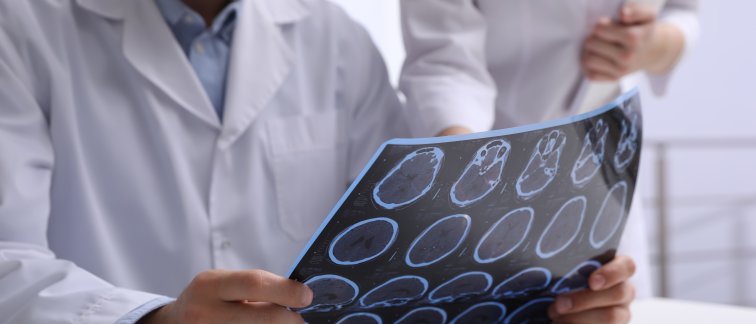Dr. Hamann, head of Amsterdam UMC Biobank, Principal Investigator (PI) at the Amsterdam institute for Immunology and Infectious Diseases (AII), and researcher at Amsterdam Neuroscience (AN), along with his role as guest co-PI at the Netherlands Institute for Neuroscience (NIN), has been awarded the MS Research bonus grant of €300,000 from the MS Research Foundation. The grant supports the research project titled ‘Path and Performance of Pathogenic T-Cells in the Human MS Brain’. This project involves conducting single-cell RNA sequencing of T-cells from various brain regions, including brain borders, cerebrospinal fluid, parenchyma, and MS lesions.
Dr. Hamann's focus is on studying resident T-cells in both healthy human brains and those of multiple sclerosis (MS) patients. Despite the relatively low numbers, mostly CD8+ T-cells populate the human brain. Previous work by Dr. Hamann and his collaborators at the Netherlands Institute for Neuroscience revealed tissue-resident characteristics and their accumulation in lesions of individuals with MS. Notably, in previous research RNA sequencing showed no transcriptional changes in T-cells within MS lesions at the bulk level.
Zooming in on MS lesions
With the €300,000 funding from the MS Research Foundation the research team aims to delve into the recruitment and activity of detrimental T-cell subsets entering MS lesions in greater detail.
Towards targeted therapies
The main challenges of current MS treatments include off-target attenuation of beneficial immune responses, and the lack of compounds targeting compartmentalized inflammation in progressive MS without relapses or active MRI lesions. A significant obstacle in overcoming these challenges is the limited understanding of healthy lymphocyte dynamics within the central nervous system (CNS). This project holds the promise of uncovering the dynamics of T-cell infiltration and activity in individuals with MS, potentially identifying targetable components contributing specifically to inflammation and disability progression.
For more information contact Dr. Hamann.
Text: Jörg Hamann and Esmée Vesseur
Discover the latest grants and awards bestowed upon our AII researchers:
9.5M Accelerates Medicines and Vaccines Development for Infectious Diseases (March 2024)
Work Visit Grant /a Journey in Diabetes and Immunology Research (March 2024)
Eight Emerging Scientists Awarded AUF Starting Grant for Pioneering Medical Research (March 2024)

